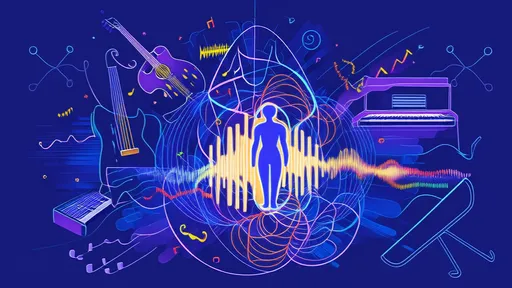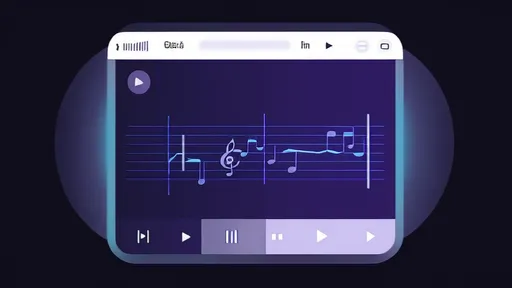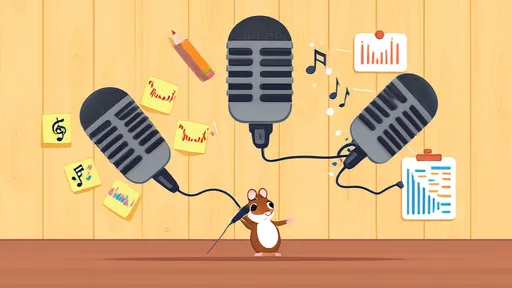Memorizing song lyrics can be a frustrating experience for many music lovers and performers alike. Whether you're preparing for a karaoke night, a choir performance, or simply want to sing along perfectly to your favorite tunes, having reliable methods to quickly absorb lyrics makes the process far more enjoyable.
The human brain processes musical information differently than regular speech or written text. This neurological reality forms the basis of effective lyric memorization techniques. When we combine auditory, visual, and kinesthetic learning approaches, we create multiple neural pathways that reinforce memory retention.
One powerful approach begins with breaking down the song's structure. Most contemporary music follows predictable patterns - verses, choruses, bridges, and sometimes pre-choruses or outros. By recognizing these structural components, you create mental "file folders" where specific lyric sections naturally belong. This organizational framework prevents the common problem of mixing up verses or forgetting where particular lines appear in the song.
Active listening forms the cornerstone of rapid lyric absorption. Rather than passively hearing the song, engage in focused listening sessions where you consciously track the words. Many find it helpful to read along with official lyrics during these sessions, as the combination of auditory and visual input strengthens memory. Pay particular attention to rhyming patterns and rhythmic stresses, as these musical elements serve as natural mnemonic devices.
The physical act of writing lyrics by hand provides surprising benefits. This kinesthetic approach engages different parts of the brain than simply reading or hearing the words. The deliberate, slower process of handwriting creates stronger neural imprints than typing. For particularly challenging sections, try writing problematic lines repeatedly until they feel automatic.
Vocalization represents another critical component. Singing the lyrics aloud, even softly, incorporates muscle memory into the learning process. The physical act of forming words with your mouth and vocal cords creates additional memory anchors. This explains why many people can remember lyrics to songs they haven't heard in years when the music starts playing - the motor memory comes flooding back.
Visual learners often benefit from creating mental imagery connected to lyrics. Our brains evolved to remember vivid pictures far better than abstract words. For each line or verse, construct a mental movie or striking image that represents the content. The more unusual or emotionally charged the imagery, the more likely it will stick in your memory. This technique proves especially effective for metaphorical or abstract lyrics that might otherwise be difficult to recall.
Contextual understanding dramatically improves retention. When you comprehend what the lyrics actually mean - their story, emotions, and message - they transform from arbitrary words to meaningful communication. Research shows we remember information much better when it has personal significance or emotional resonance. Take time to analyze the song's narrative or thematic elements, and consider how they relate to your own experiences.
Sleep plays an underappreciated role in lyric memorization. The brain consolidates memories during sleep cycles, particularly during REM sleep. Practicing lyrics shortly before bedtime, then reviewing them first thing in the morning, can significantly boost retention. This spaced repetition takes advantage of the brain's natural processing rhythms.
For performers, movement and staging can serve as powerful memory triggers. Many professional singers associate specific lyrics with physical movements or stage positions. This technique, sometimes called "blocking" in theater, creates physical cues that prompt lyric recall. Even simple hand gestures or steps can provide enough kinesthetic input to keep lyrics flowing smoothly during performances.
The emotional connection to music shouldn't be underestimated. Songs that evoke strong feelings automatically embed themselves deeper in our memories. This explains why people often remember every word to childhood songs or tracks associated with significant life events. When working with new material, take time to develop a personal connection with the song's emotional content.
Technology offers valuable tools for modern lyric learners. Slowing down tracks without changing pitch allows for clearer enunciation study. Many music apps and software programs provide this functionality. Karaoke-style displays that highlight words in sync with the music can accelerate the learning curve by providing visual timing cues.
For those preparing multiple songs, creating a personalized categorization system helps prevent mental mixing. Group songs by genre, tempo, emotional tone, or any other meaningful classification. This organizational strategy creates mental "filing cabinets" that make retrieving specific lyrics more efficient when needed.
The social aspect of music provides another memorization boost. Practicing with others creates accountability and opportunities for call-and-response reinforcement. Even casual sing-alongs with friends help cement lyrics through repetition in a low-pressure environment. The mild social pressure of performing for others often motivates more focused practice as well.
Professional vocal coaches emphasize the importance of proper breathing in lyric retention. When we breathe naturally at phrase boundaries as the songwriter intended, lyrics tend to flow more naturally. Learning a song's breath marks creates natural segmentation that makes long lyric sequences more manageable to remember.
Finally, patience and self-compassion remain essential. Lyric memorization follows the same learning curve as any other skill. Some songs will click immediately while others require persistent effort. Celebrating small victories and maintaining a growth mindset keeps the process enjoyable and sustainable over time.
These techniques work synergistically - the more methods you combine, the faster and more securely lyrics will stick in your memory. With consistent practice, you'll develop your own personalized approach to quickly internalizing any song's words, transforming frustration into musical confidence.

By /Aug 5, 2025

By /Aug 5, 2025

By /Aug 5, 2025

By /Aug 5, 2025

By /Aug 5, 2025

By /Aug 5, 2025

By /Aug 5, 2025

By /Aug 5, 2025

By /Aug 5, 2025

By /Aug 5, 2025

By /Aug 5, 2025

By /Aug 5, 2025

By /Aug 5, 2025

By /Aug 5, 2025

By /Aug 5, 2025

By /Aug 5, 2025

By /Aug 5, 2025

By /Aug 5, 2025

By /Aug 5, 2025

By /Aug 5, 2025